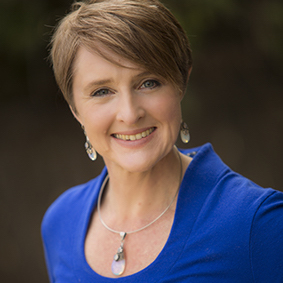
Most mornings I go for a run in the nature reserve behind my house. It’s hilly and tough going. After a long slow grind up a steep bit, I am rewarded with glorious views. It’s a revelation every time. The moods of the city and shrubbery change from day to day. Sometimes shrouded in fog, sometimes bright and blistering in dazzling morning sun. It’s always an opportunity to pause and take stock. What’s good in the world today? Isn’t it amazing how nature carries on even while the toil and troubles of humanity churn away at its feet.
I’m a believer that big views give big insights. I can always see more of a problem when I get high above it. What looks like an obstacle close up gets avoided after a climb to see beyond it. Mountains are amazing for this reason: the struggle to climb them is worth the path they reveal at the top.
As leaders, we need to work at gaining elevation.
“Perspective is the catalyst for all change.
When we see things in a different way, we can do things in a different way too.”
Central to the ideas in my new book, People Stuff, is the practice of perspective. We need to expand and include as much as possible to make sense of the world around us.
If we are looking at the issues around institutionalised racism, and how we might be unwittingly contributing to it, we need to zoom right out. How much history can we look at? How about 65,000 years of Aboriginal history? That’s many times more than modern history. There is volume and depth of cultural lore that exists in the very cells, the DNA, of a First Nations human being. It looks different to the much shorter history and cultural lore of European humans. If we have different heritage and cultural practices shaping our experience, we see the world differently.
If we get curious about that, it’s a start.
Expand perspective.
And now zoom in. Look below the surface. Like a tree has roots, problems reach deep beneath us.
If our First Nations people are being incarcerated more than others, what is contributing to that? Poverty, isolation, and frustration. Go deeper. What is contributing to those issues? Loss of land, Stolen Generations, persecution. And again, deeper, what is contributing to that? Desire for a better life and competition for resources from European arrivals. And what caused that? Poverty, crime, persecution.
Persecution turned into persecution.
We are more the same than not. We are the same and different.
When we can look each other in the eyes and feel our living, beating hearts, then we’ve got a start.
All of us have a heritage. It shapes who we are and how we see the world.
Like climbing a gnarled and craggy mountain, when we see more of how we got here, we might see a better way down from a tough and treacherous peak.
We’ve got work to do.
***
Related Articles:
How to Reset the Team After Shutdown
How to Lead with Confidence Through Uncertainty
Boundless Leadership: The Strength You Need
***

